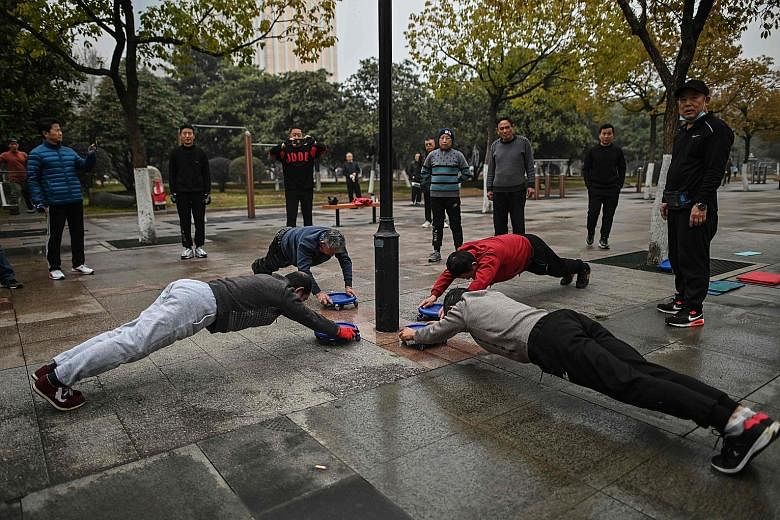Visit any park in a Chinese city and one would see groups of older people practising centuries-old exercises like taiji or dancing to folk tunes.
The elderly in China are an active lot, with 60 per cent of them exercising five times or more a week and nearly 17 per cent doing so three to four times a week, a 2017 survey showed.
Already a subscriber? Log in
Read the full story and more at $9.90/month
Get exclusive reports and insights with more than 500 subscriber-only articles every month
ST One Digital
$9.90/month
No contract
ST app access on 1 mobile device
Unlock these benefits
All subscriber-only content on ST app and straitstimes.com
Easy access any time via ST app on 1 mobile device
E-paper with 2-week archive so you won't miss out on content that matters to you


